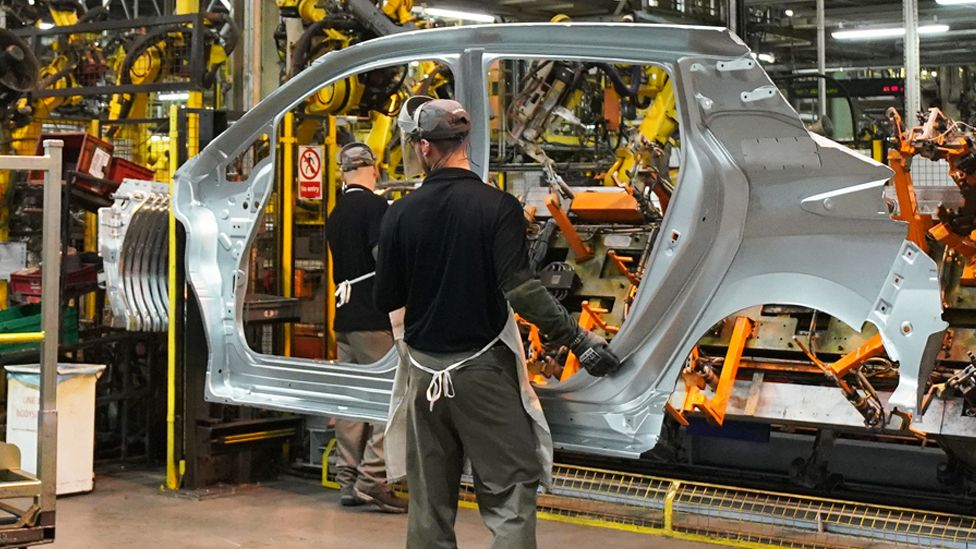Six months after warning that the UK’s carmakers were facing “a critical moment” in their history, the industry’s trade body was celebrating an influx of new inward investment at its annual dinner last week.
The Society of Motor Manufacturers and Traders (SMMT) hailed £20bn of private sector commitments in 2023, which is more than in the past seven years combined. Investments are being made across the supply chain – in battery and car manufacturing, lithium mining and in research and development (R&D), the SMMT’s outgoing president, Alison Jones, told diners.
“The industry has backed itself with big decisions on big investments to guarantee jobs and our future,” said Jones, who is also a senior vice-president at Stellantis (IT:STLAM).
The main commitments have been made by three of the UK’s four main manufacturers by volume. Tata Motors (IN:500570) pledged to build a £4bn battery factory in Somerset, which will be used in its own Jaguar and Land Rover vehicles but also sold to other carmakers. Nissan (JP:7201) last month said it would invest £2bn to develop three electric models in Sunderland and BMW (DE:BMW) has pledged a £750mn investment to make two all-electric Mini models at its plant in Oxford. The other mass producer in the UK, Toyota Motor (JP:7203), is still working on a range of its own battery technologies, including solid-state batteries.
These pledges have only been coaxed out with offers of generous subsidies from the government, though. In last month’s Autumn Statement, £2bn was offered to the industry over a five-year period to “support the manufacturing and development of zero emission vehicles, their batteries and supply chain”.
Avoiding a crash
Such subsidies are “essential” to the continuation of car production in the UK, said Stephen Cooney, a principal at accountancy practice BDO. He cites the example of Australia, which 20 years ago produced around 600,000 vehicles a year but no longer has an automotive industry to speak of as international parent companies shied away from producing models for the small local market.
Free trade deals with East Asian manufacturers also “decimated” domestic production, Cooney argued. “So if the government wants an automotive manufacturing industry in the UK, they’ve got to focus on making those strategic decisions, because it’s not just the vehicle manufacturing jobs it supplies… it supports a huge number of jobs within the supply chain,” Cooney said.
According to the SMMT, the UK’s auto industry supports around 1mn jobs, with a fifth of those directly involved in vehicle making. The industry is Europe’s second-largest in value-added terms, generating £15.2bn, according to the Treasury. It also exports around 80 per cent of its output, mainly to the EU, and received a further fillip this week when a deal was hashed out around so-called ‘rules of origin’ that avoids the imposition of a 10 per cent levy on electric vehicles traded with the bloc.
Therefore, although some of the upfront incentives being offered are huge – Tata secured £500mn in government subsidies for its battery plant, according to the Financial Times – “that one single investment guarantees that vehicle manufacturer for 10-20 years”, Cooney said.
Yet such handouts may only be delaying the inevitable. Europe’s volume carmakers now trade off incredibly low valuations, with Stellantis and Volkswagen (DE:VOW) shares priced at less than four times forecast earnings and Renault (RNO) shares at under three times.
Although this is partly because the earnings side of this equation is unusually high, with supply chain disruptions offering a “healthy pricing environment”, according to Morningstar senior equity analyst Richard Hilgert, this isn’t expected to last.
UBS analysts are forecasting a 20-25 per cent decline in operating margins for carmakers in 2024, with shrinking order books leading to a more competitive market in which “15-20 per cent discounts have become the norm”, the investment bank said in a note this week.
Carmakers will also face much tougher competition from Chinese EV makers from 2025 onwards as companies such as BYD step up exports to the UK and Europe.
BYD’s models are typically 25 per cent cheaper than European counterparts, with some “very innovative cost-saving designs” in them, said Gerry Fowler, UBS’s European head of equity strategy.
“If the likes of Volkswagen and Renault are going to be able to compete in the electric vehicle market… they have an enormous amount of investment to do,” Fowler said.
“On some of the stocks that are the most mass market, we have serious structural concerns about their ability to deliver profits and give those back to shareholders while they participate in the EV transition.”
Source : InvestorsChronicle


